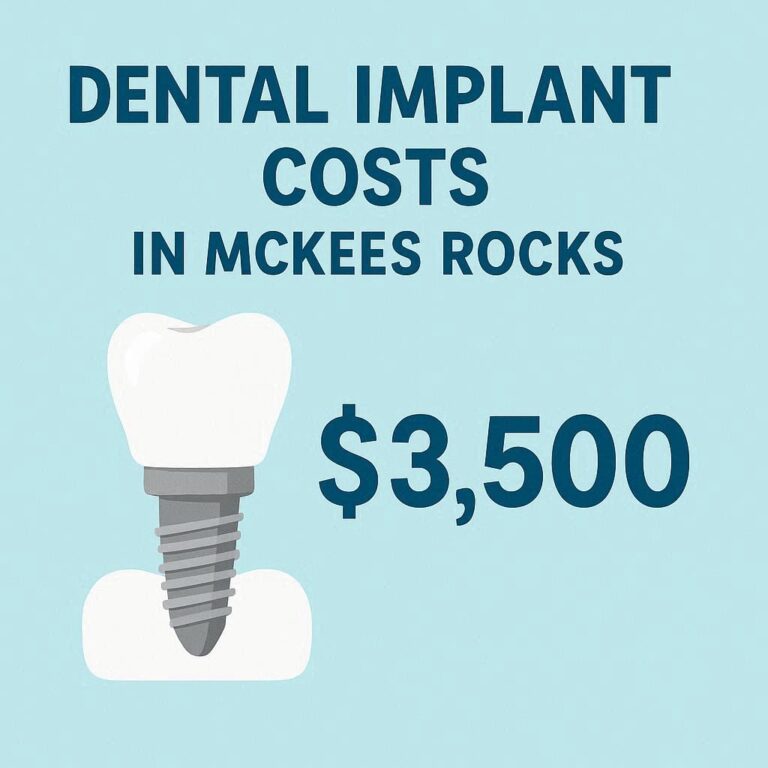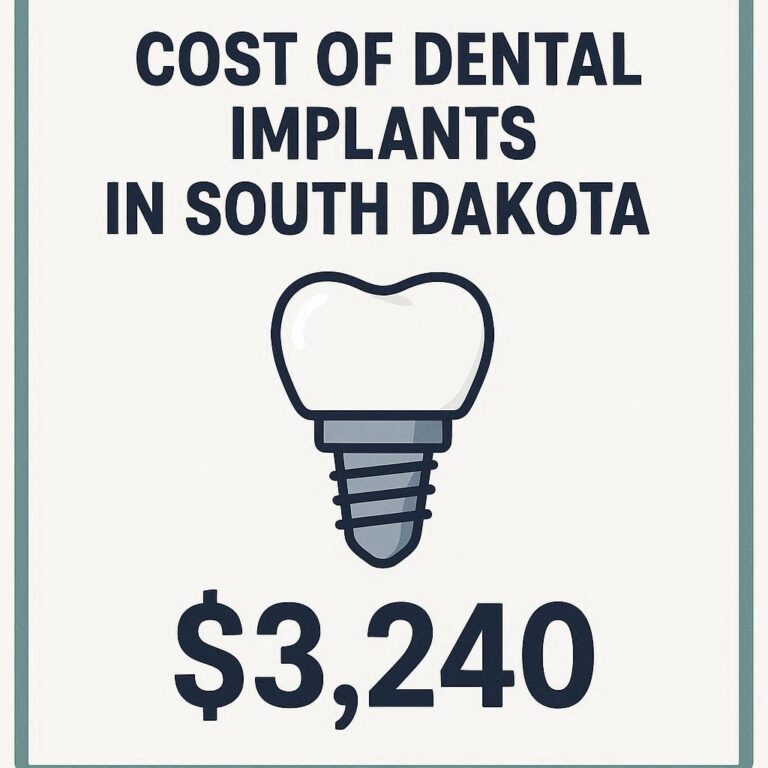Unveiling the Dental Implants cost in Kenya: A Comprehensive Guide for a Brighter Smile
For many Kenyans, a dazzling smile is a symbol of confidence and overall well-being. Yet, missing teeth can significantly impact not only aesthetics but also functionality when it comes to chewing, speaking, and self-esteem. Dental implants have emerged as a revolutionary solution, offering a permanent and natural-looking alternative to traditional bridges and dentures. However, navigating the cost of this treatment in Kenya can be a confusing process. This extensive guide dives deep into everything you need to understand about dental implant costs in Kenya, empowering you to make informed decisions for your oral health journey.

The Allure of Dental Implants: A Permanent Solution
Dental implants are small, screw-like titanium posts surgically placed into the jawbone. These implants act as artificial tooth roots, providing a stable foundation for a crown (the visible part of the tooth) to be attached. Unlike dentures or bridges, implants fuse with the jawbone over time, mimicking the function and strength of natural teeth. This translates to several advantages:
- Enhanced Aesthetics: Implants provide a natural-looking replacement that blends seamlessly with your existing teeth.
- Improved Functionality: Implants allow for normal chewing and speaking, promoting better digestion and clearer communication.
- Durability and Longevity: With proper care, dental implants can last a lifetime, offering a long-term investment in your smile.
- Preserves Jawbone Health: Implants stimulate the jawbone, preventing bone resorption that can occur with missing teeth.
Understanding the Cost Factors: A Breakdown of the Equation
While dental implants offer undeniable benefits, their cost is a significant consideration. The total price can vary depending on several factors, making it crucial to understand the breakdown:
- Number of Implants: The number of implants needed is a primary cost driver. Replacing a single tooth will cost less than replacing multiple teeth or an entire arch (all teeth on one jaw).
- Implant Material: The type of implant material used can influence the price. Typically, titanium implants are the industry standard, offering a balance of biocompatibility and durability.
- Abutment and Crown: The abutment connects the implant to the crown. Material choices for both components can impact the final cost.
- Bone Grafting: In some cases, bone grafting may be necessary to create a strong foundation for the implant. This additional procedure adds to the overall cost.
- Surgical Complexity: Complex surgical procedures, such as those involving multiple implant placements or sinus lifts (procedures to increase bone volume in the upper jaw), can incur higher costs.
- Dentist’s Expertise and Experience: A highly skilled and experienced dentist with a proven track record in implant dentistry may command higher fees.
- Location: Dental implant costs can vary depending on the geographical location of the dental clinic. Urban areas tend to have higher costs compared to rural areas.
Cost Table: A Snapshot of Price Ranges
To illustrate the cost variations, here’s a table outlining the estimated price range for a single dental implant in Kenya:
| Factor | Estimated Price Range (Ksh) |
|---|---|
| Single Implant (without additional procedures) | 60,000 – 150,000 |
| Bone Grafting (per site) | 30,000 – 50,000 |
| Abutment | 10,000 – 20,000 |
| Crown | 20,000 – 50,000 |
| All-on-4 Implants (full arch, including procedure and components) | 600,000 – 1,500,000 |
Additional Considerations: Unveiling Hidden Costs
Beyond the core implant procedure, there are additional expenses to factor in:
- Consultation Fees: Initial consultations with the dentist to discuss your case and treatment plan may incur a fee.
- Diagnostic Tests: X-rays, CT scans, and other diagnostic tests might be required for accurate planning, adding to the cost.
- Medication: Antibiotics and pain medication prescribed after surgery will add to the overall expense.
- Follow-up Appointments: Regular follow-up appointments to monitor the healing process and ensure implant success are essential and may involve additional costs.
Exploring Financing Options: Making Implants Accessible
While the initial cost of dental implants may seem daunting, numerous financing options can help make this treatment more accessible:
- Dental Insurance: Some dental insurance plans offer partial coverage for dental implants. It’s crucial to check your specific policy details.
- Payment Plans: Many dental clinics offer flexible payment plans, allowing you to spread the cost over a manageable timeframe.
- Medical Loans: Consider exploring medical loans specifically designed for dental procedures.
Choosing the Right Dentist: A Keystone for Success
Selecting a qualified and experienced dentist is paramount for a successful dental implant experience. Here are some key factors to consider:
- Qualifications and Experience: Seek a dentist with extensive training and experience in implant dentistry. Look for certifications from recognized dental implant organizations.
- Technology and Equipment: Ensure the dental clinic utilizes advanced technology for diagnostics, such as digital X-rays and CT scans, for precise implant placement.
- Communication and Transparency: Choose a dentist who clearly explains the treatment process, cost breakdown, and potential risks and complications. Open communication is key to building trust and managing expectations.
- Patient Reviews and Testimonials: Research online reviews and testimonials from past implant patients to gain insights into the dentist’s skillset and patient satisfaction.
Comparison Shopping: Finding the Best Value
While cost is a significant factor, it shouldn’t be the sole deciding element. Here are some tips for comparison shopping:
- Schedule Consultations with Multiple Dentists: Consult with several dentists to compare their treatment plans, cost estimates, and overall approach. This allows you to ask questions, assess their communication style, and gain a sense of comfort level.
- Beware of Unusually Low Prices: Extremely low prices for dental implants might raise red flags. Lower costs could indicate the use of lower-quality materials, less experienced dentists, or incomplete treatment plans.
- Focus on Value, Not Just Cost: Consider the dentist’s expertise, reputation, technology, and overall patient experience when making your decision. The best value goes beyond just the initial price tag.
Insurance Coverage: Understanding the Fine Print
Dental insurance coverage for implants varies widely. Here’s what you need to know:
- Limited Coverage: Most dental insurance plans offer limited coverage for dental implants, often focusing on specific components like the crown or abutment.
- Pre-approval Process: If your insurance plan offers some coverage, understand the pre-approval process and obtain necessary approvals before proceeding with treatment.
- Alternative Solutions: Discuss alternative solutions with your dentist if your insurance doesn’t cover implants. Explore options like bridges or dentures, while keeping in mind the potential long-term costs and limitations compared to implants.
Financing Options: Tailoring a Payment Plan
Several financing options can help make dental implants a more manageable financial decision:
- In-House Payment Plans: Many dental clinics offer in-house financing plans with flexible terms and interest rates.
- Third-Party Financing Companies: Third-party financing companies specialize in medical loans specifically designed for dental procedures.
- CareCredit: CareCredit is a popular healthcare credit card offering financing options for dental procedures.
Compassionate Care: Addressing Concerns and Overcoming Anxiety
Dental implant surgery can be a source of anxiety for some patients. Here’s how to address these concerns:
- Open Communication: Discuss your anxieties with your dentist. A compassionate and understanding dentist will address your concerns, explain the procedure thoroughly, and provide sedation options if needed.
- Focus on the Benefits: Remind yourself of the long-term benefits of dental implants, including a restored smile, improved functionality, and a boost in self-confidence.
- Prioritize Comfort: Choose a dentist who prioritizes patient comfort and offers various pain management techniques (local anesthesia, sedation) during the procedure.
Frequently Asked Questions (FAQs)
Q: How long does the dental implant procedure take?
A: The duration of the dental implant procedure depends on the complexity of the case. A single implant placement can take 1-2 hours, while procedures involving multiple implants or bone grafting might require a longer timeframe.
Q: Does dental implant surgery hurt?
A: Local anesthesia is used during the surgery to numb the area, minimizing discomfort. You may experience some soreness or swelling after surgery, which can be managed with medication.
Q: How long does it take to recover from dental implant surgery?
A: Healing time varies depending on individual factors. Typically, it takes several weeks to heal from the implant placement surgery. The final crown or restoration might be placed after several months to allow for complete osseointegration (fusion of the implant with the jawbone).
Q: How long do dental implants last?
A: With proper care, dental implants can last a lifetime. Maintaining good oral hygiene practices and regular dental checkups are crucial for the longevity of implants.
Q: Are dental implants safe?
A: Dental implants have a high success rate when performed by a qualified dentist. However, as with any surgical procedure, there are potential risks like infection or implant rejection. A thorough consultation with your dentist will help you understand the potential risks and benefits.
Conclusion
Dental implants offer a life-changing solution for replacing missing teeth and restoring a radiant smile, improved functionality, and boosted self-confidence. While the cost can be a significant factor, understanding the breakdown, exploring financing options, and focusing on value over just price can make this treatment more accessible. By choosing a qualified and experienced dentist who prioritizes patient care and communication, you can embark on a journey towards a healthier, brighter smile. Remember, a dazzling smile is an investment in your overall well-being, and with careful planning and the right dental team, dental implants can become a reality.
You might also want to check out these articles for more ideas: all on 4 dental implants cost


